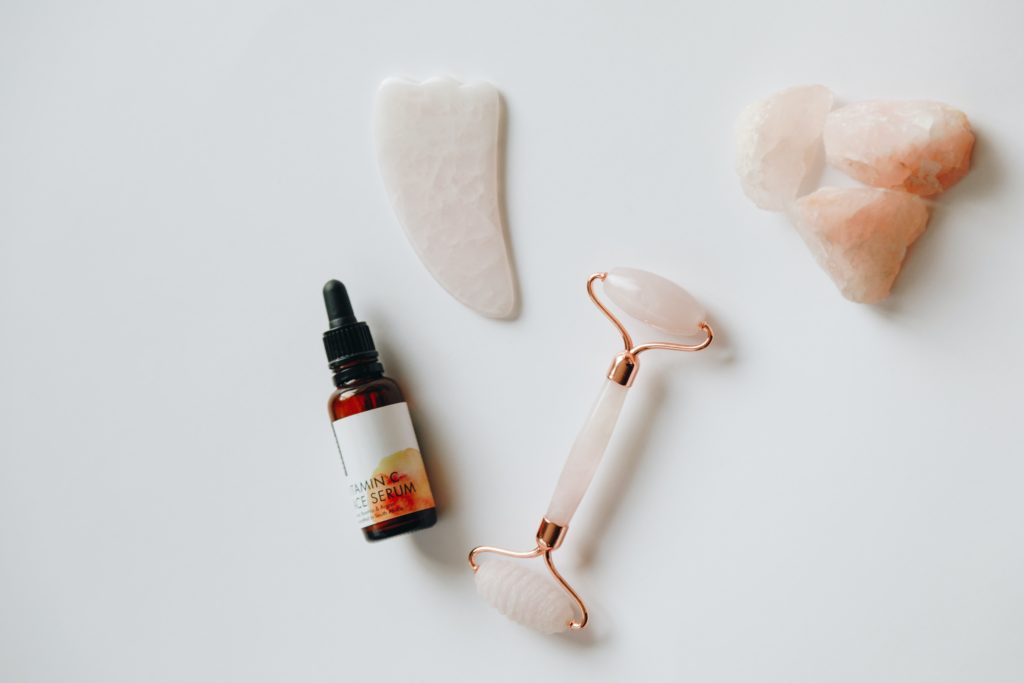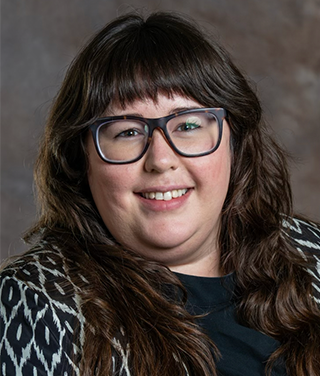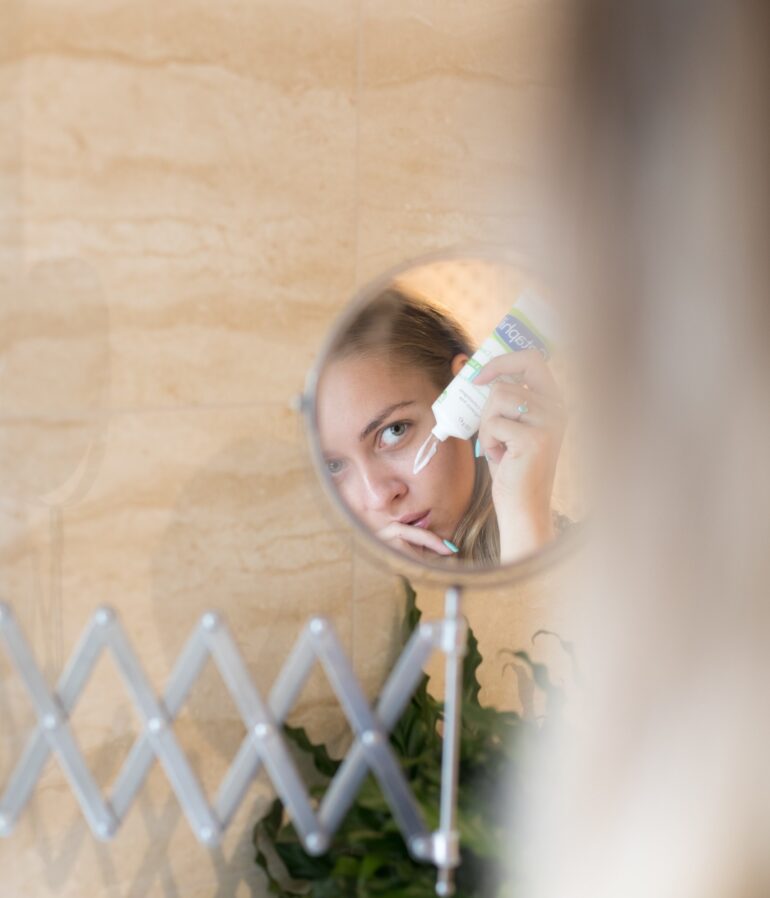As part of our “You Said It” Op-Ed series, we invite contributors to submit their opinion pieces. Have a submission? Contact us.
My skin looks like a glazed donut. If you’re like me, you’ve become more serious about your skin care in the past few years. Maybe you’ve added some steps to your routine, tried a handful of new sunscreens, or even experimented with skin cycling to change up the benefits each night. We’ve carefully followed all the prescribed wellness advice, so why don’t we feel any better about the state of the world? We cannot self-care our way into a better existence. We need a community of care to face the world together.
For many of us, it seems like the challenges we face each day are growing. The cost of services and goods are increasing rapidly. We are forced to keep going even though we are burned out and still processing the collective losses of a global pandemic. White nationalism is gaining visibility and power. People who can get pregnant face an increasingly difficult path to receiving abortion care.
When the world outside feels harsh, it feels good to come home, practice some yoga, eat a nourishing meal, do your skin care routine, and snuggle into bed with your pet. As Lizzo says, “You water all your plants and eat your veggies. I’m obsessed with it.” All of us need this.
More and more people are understanding the importance of self-care in their daily lives. Self-care began as a political tool of resistance against cultural messages about who deserves care and protection and as a tool to support collective, holistic wellbeing within an openly hostile and racist environment.
Black feminist Audre Lorde wrote in a Burst of Light, “Caring for myself is not self-indulgence, it is self-preservation, and that is an act of political warfare.” In this essay, Lorde explores the ways in which mental wellbeing is as important as the physical recommendations her doctors give her as she fights cancer. And like many concepts that begin as a radical resistance to oppressive forces, self-care has been commodified and watered down to sell us products.
Many white women have turned inward in the name of self-care. We “relax and de-stress” with $32 jade rollers and set “boundaries” that limit the energy we spend supporting meaningful causes or deeply interrogating our own racism. With the right set of privileges, some of us can create a nearly perfect world for ourselves and our families inside the comforts of our homes, tuning the world out as we sink into our bathtubs.

But for many, the world is beating at our doors and forcing its way in. We may have thought we could keep the world out, until a letter arrives in our apartment mailbox announcing that rent will increase by ten percent in three months. We already live paycheck-to-paycheck or perhaps we even need to put some of our expenses on a credit card each month. Each knock threatens our safety and comfort. For some of us, there was never a place to go. Nowhere to hunker down and ride out the storm.
When we diagnose the problems in our world, we see clearly that the best explanations for oppression and suffering appeal not only to individuals and the actions they take, but also to interlocking systems that work together to produce unjust and oppressive conditions (as theorized by the Combahee River Collective in 1977). Our greatest challenges are not just about what one individual does or does not do. However, it does not follow from this analysis that it does not matter what we do. Instead, it matters greatly what we do.
We are faced with a choice: Do we escape into our own private homes and private lives? Or do we brave our world—in all its complexity—together? The answer lies beyond skin care masks and bubble baths. We need a community of care. Communities of care provide networks of support that allow for collective action. They provide mutual aid while also organizing to change the social and economic conditions of our communities. During the COVID-19 pandemic, mutual aid efforts blossomed, often out of groups who were already organizing for change, like prison abolition or reproductive justice.
When we reflect on the history of our country, we see countless examples of people who supported each other while changing the world. Grace Lee Boggs, a philosopher and Detroit organizer, argued that when we get engaged in our communities, we are transformed. When we plant a community garden from which we can all be nourished and commune together to enjoy its fruits, our wellbeing is supported in all of its layers and complexities. There are grassroots movements in your city or county to join or support. As the midterm election approaches, be a voter and encourage others to be voters by participating in door-to-door canvassing or phone banking. There are organizations that need your financial or volunteer support. This is community care.
Don’t get me wrong, there’s nothing wrong with glowing skin or dedicating time for the care of the self. However, this must also be coupled with the development and maintenance of networks of care. Do more than you have ever done before. It won’t be skin care that saves us. But we can save ourselves (and each other).
More from Better:
- How To Help: This October We Honor Mental Health Awareness — Support Your Loved Ones and Community
- 13 Women Leaders Share Empowering Advice for Women on the Rise
- Best-selling Author Eve Rodsky Shares 5 Tips to Help Women Establish a Fair Balance at Work and Home

Lacey J. Davidson is an Assistant Professor of Philosophy at the University of Indianapolis. She organizes for transformative community change with Indiana Task FORCE (Feminists Organizing and Reimagining Civic Engagement) and is a Public Voices Fellow with The OpEd Project.

